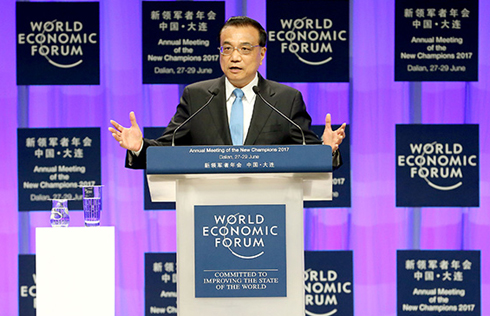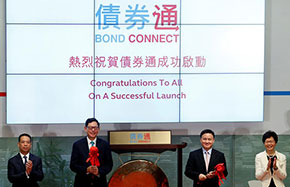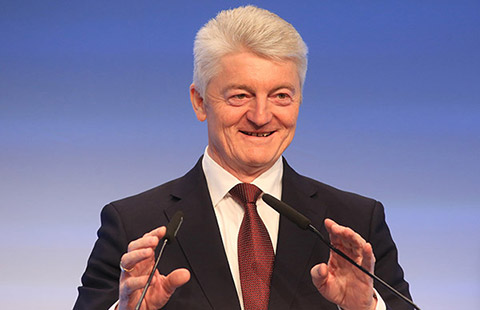Tough measures introduced to curb air pollution
BEIJING - The State Council, China's cabinet, on Friday outlined a string of measures for curbing the air pollution that is plaguing the country, vowing "tough measures for tough tasks."
The government should incorporate optimizing the country's economic structure and intensifying innovation into its environmental protection efforts, according to a statement released after an executive meeting of the State Council that was presided over by Premier Li Keqiang.
China will strictly control high energy-consuming and polluting industries, adjust its energy structure and enhance control of PM2.5, airborne particles measuring less than 2.5 microns in diameter that can pose health risks, in populated regions and metropolises, it said.
During periods of heavy pollution, local governments should enact emergency response measures, such as implementing traffic restrictions or instituting emissions limits for polluting industries, according to the statement.
Air pollution in China, an increasingly conspicuous and discussed problem, is the result of long-term accumulation, said the statement.
"Curbing air pollution is a complicated and systematic project that requires long and arduous efforts," the cabinet noted in the statement.
Other preventative measures include reducing the emission of pollutants, with a special focus on small-scale coal-fueled boilers, the environmentally-friendly transformation of major industries and urban dust control.
According to the statement, strict controls will be put in place for industries that produce large amounts of waste and pollution and hope to expand. Efforts to eliminate outdated technology in the steel, cement and electrolytic aluminum industries, among others, will also be strengthened.
The statement vowed to further promote clean production and set a goal of reducing key industries' emissions of major air pollutants by at least 30 percent by the end of 2017.
Supplies of clean energy such as natural gas and methane will be increased, and construction projects that fail to pass environmental evaluations should not be given permission to begin, it statement.
The measures should be enforced to ensure that pollution control efforts can take effect as soon as possible and that new points of economic growth can be cultivated at the same time, the statement said.
The government also plans to establish discharge standards for key industries and require heavily polluting companies to publicize environmental data.
A ranking of air quality in major cities should be made public, the statement said.
To conserve energy and cut emissions, the government will also intensify efforts to collect pollutant discharge fees and offer more credit support for projects to curb air pollution, according to the statement.
These measures came after Environment Minister Zhou Shengxian's remarks earlier this month highlighted industrial restructuring and adjusting the country's energy mix as keys to addressing air pollution.
Acknowledging that China's atmospheric environment situation is grave, Zhou said that the resource and environmental conflicts that developed nations have encountered for a century have surfaced in China overnight.
Multiple Chinese cities were choked by dense smog early this year.

























